USS Flagstaff (PGH-1)
One of the first Hydrofoils of the US Navy, loaned to the US Coast Guard along with the USS High Point (PCH-1) for evaluation.
History
Laid down in June 1966 by Grumman Aerospace, the USS Flagstaff was ordered by the USN to evaluate the concept of the hydrofoil and its potential uses as coastal patrol and high-speed interdiction. The Flagstaff was launched in July 1966 and commissioned in September 1968. Following an evaluation period, the Flagstaff, along with the USS Tucumcari (PGH-2), was deployed to Vietnam to form the Coastal Squadron 3, operating out of Cam Ranh Bay. The two hydrofoils returned to the US in 1970, due to the vessels being to complex for the Vietnam repair facilities. Following the return, the Flagstaff was assigned to the Pacific Fleet's Amphibious Forces, participating in exercises and training, as well as testing various subsystems.
Coast Guard Service
In 1974, the USN loaned the Flagstaff to the Coast Guard, who commissioned it in September 1974. Operating out of California, the Coast Guard evaluated its effectiveness in Search and Rescue, Narcotics Interdiction, and Fisheries Enforcement. One notable SAR mission was the report of a burning boat 80km (50mi) away. The Flagstaff was, in one hour, on scene and located a family of three, who had jumped off to escape the flames. The evaluation showed promise with anti smuggling and SAR, although machinery issues and a very damaging collision with a whale (that didn't survive), as well as concerns around maintenance lead to the Flagstaff's return to the Navy in February 1975, although the Coast Guard Reacquired the Flagstaff in March 1977, this time on the East Coast, to conduct actual missions. During this evaluation period, the Flagstaff suffered far more mechanical breakdowns, spending more time in repairs than operational, taking a toll on crew morale. The Flagstaff was decommissioned due to the high cost of replacing the deteriorating turbine engine. The Flagstaff was returned to the Navy and decommissioned in September 1978.
Technology
Hydrofoils come in two main forms, Surface Piercing and Fully Submerged. The former has been possible since effectively the introduction of buoyancy (~11/2018, ~9/2019), as it uses the shape of the foils to provide stability and lift, although the latter, as the foils are entirely underwater, require an active control system. Previously, this could have been accomplished with the Trim slider, although would have required a lot of attention to draft and stability. The introduction of "Funky Trees" and the ability for a craft to respond to its environment allows the Fully Submerged hydrofoil concept with far less requirement of the pilot. A full forum post will be published in the next few days detailing how to design a Hydrofoil, But for now, the Spaghetti that controls the port foil:
clamp((Altitude - (((6.75+Trim/2)*clamp01(1 - Activate6))+(4.5*clamp01
(Activate6)))) - ((RollAngle+(Yaw*5))/22.5), -1, 1)*clamp01(1 - LandingGear)
Controls
General Controls
- Throttle: Engine Power
- Yaw: Steering
- Trim: Ride Altitude
Landing Gear: Raise Foils
Activation Groups
AG6: Reverse
Notes
Avoid retracting foils whilst in flight upon them
- Steering input reverses when reversing with waterjets
- Due to a complete lack of any sort of picture, the wheelhouse and instruments are in no way accurate in design
Specifications
Spotlights
- YarisSedan 1.1 years ago
General Characteristics
- Predecessor USCGC Flagstaff (WPBH-1)
- Created On Mac
- Wingspan 35.0ft (10.7m)
- Length 82.6ft (25.2m)
- Height 41.0ft (12.5m)
- Empty Weight 124,564lbs (56,501kg)
- Loaded Weight 149,331lbs (67,735kg)
Performance
- Power/Weight Ratio 0.225
- Horse Power/Weight Ratio 0.003
- Wing Loading 16.6lbs/ft2 (80.9kg/m2)
- Wing Area 9,017.8ft2 (837.8m2)
- Drag Points 35552
Parts
- Number of Parts 840
- Control Surfaces 0
- Performance Cost 2,491

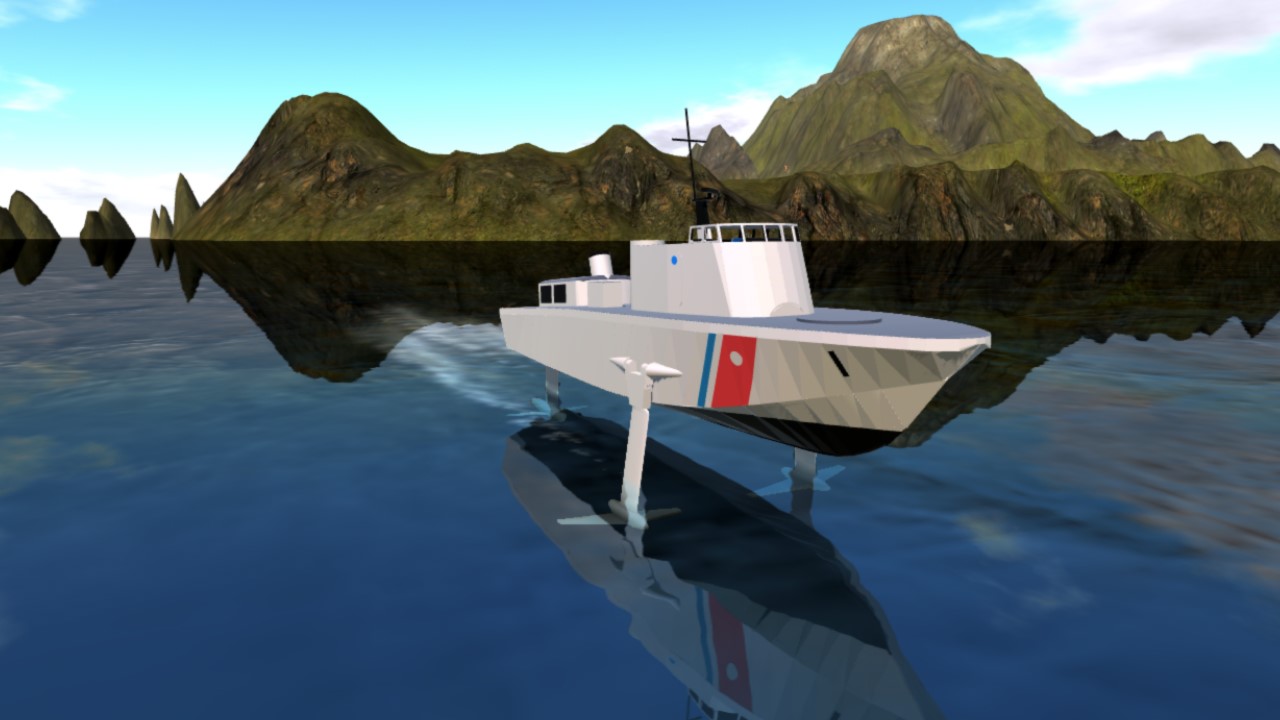
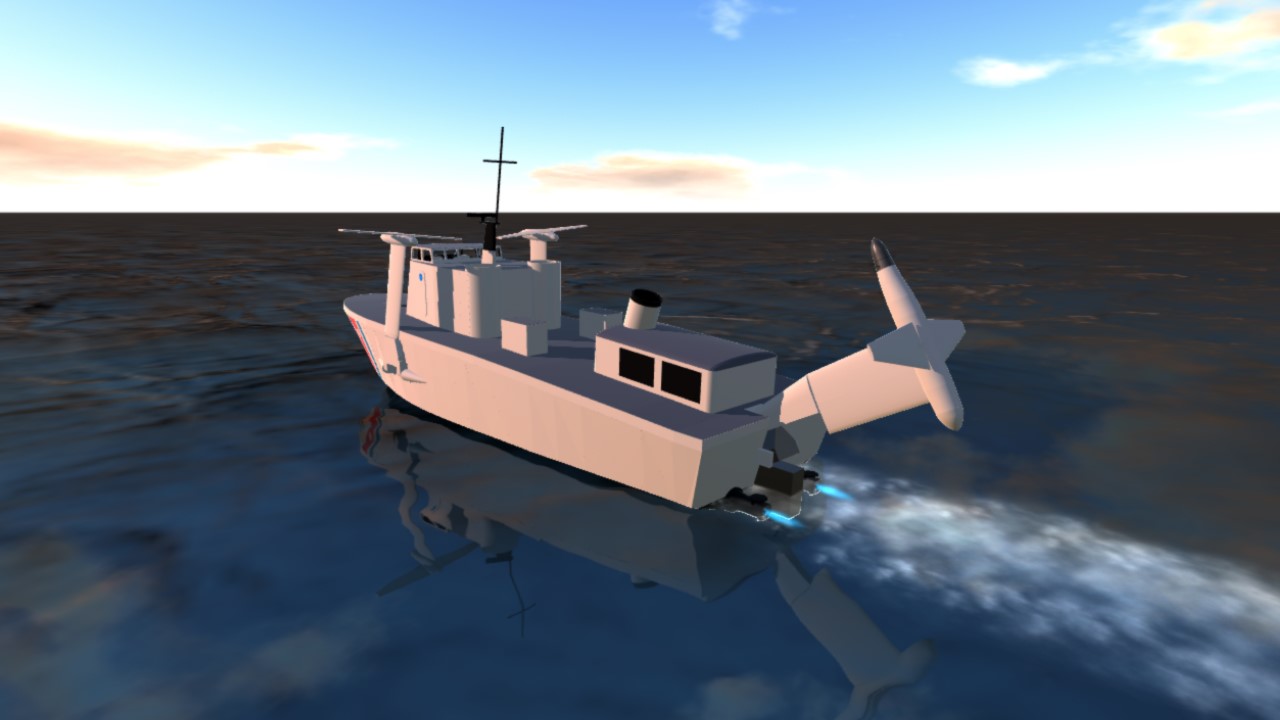
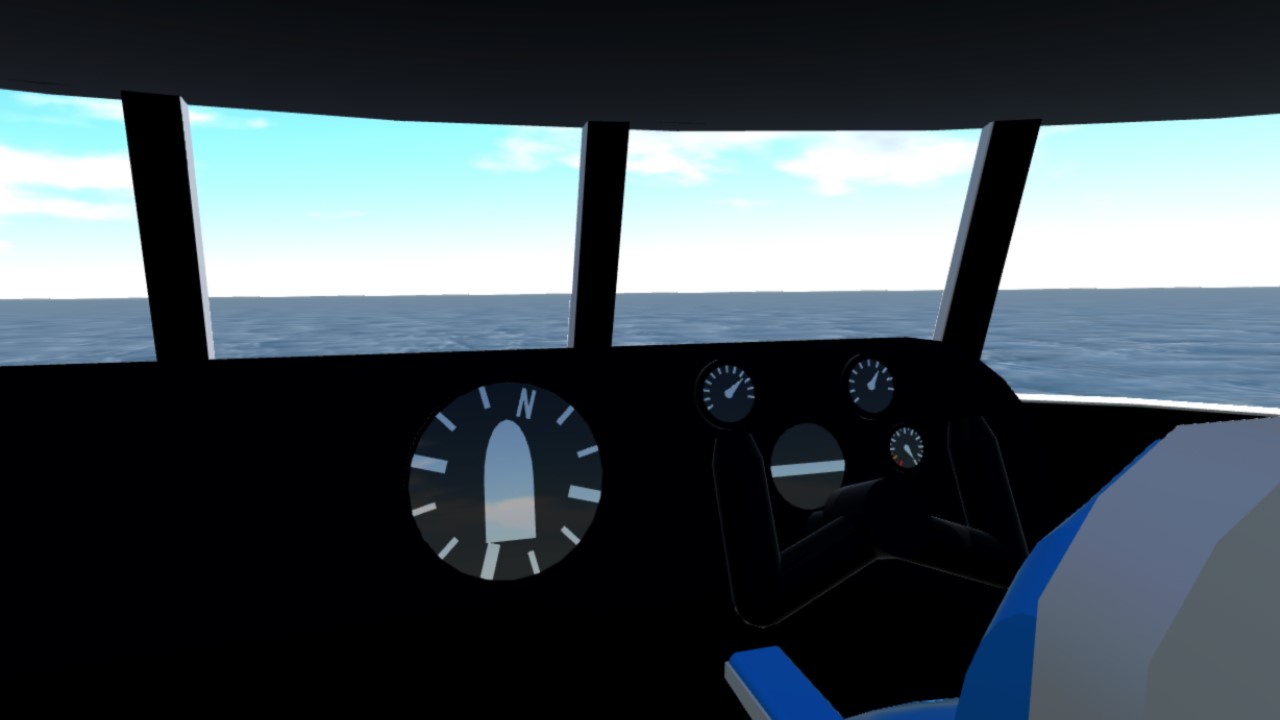
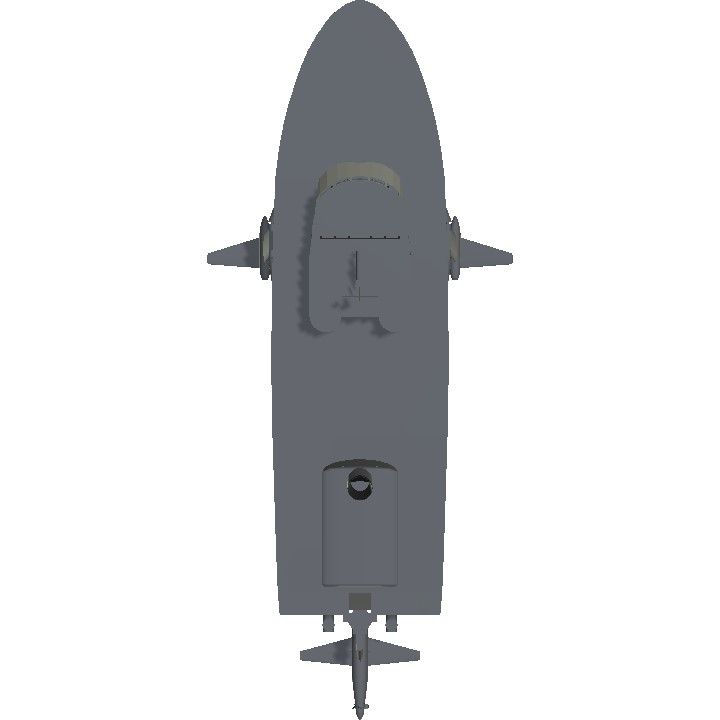
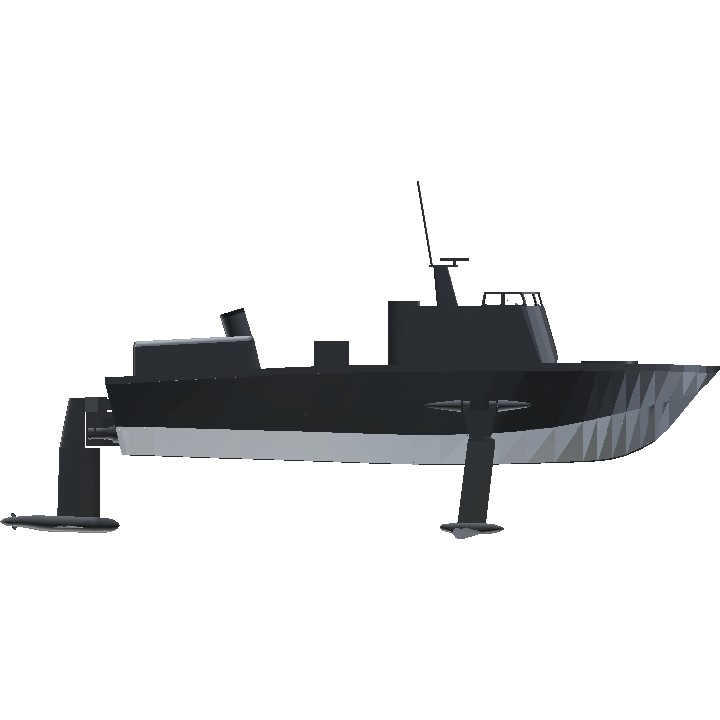
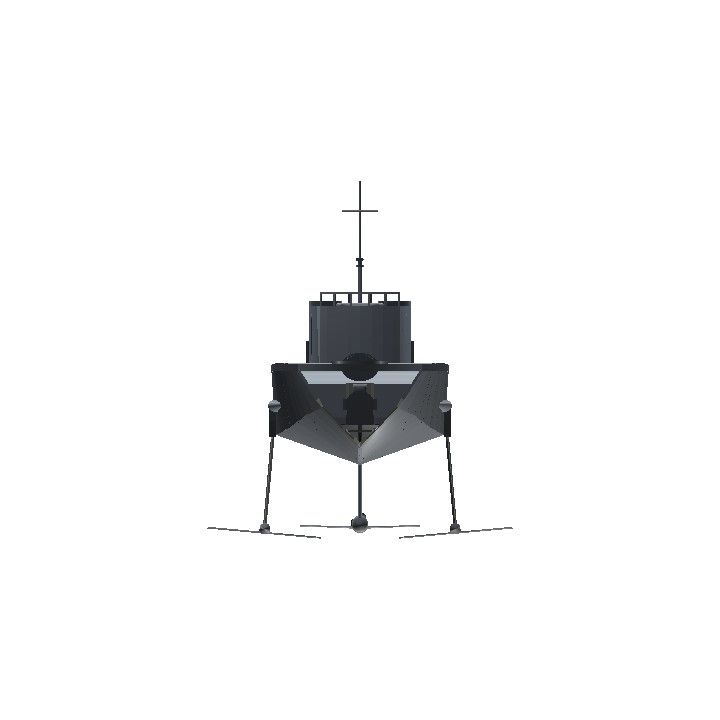
4.2 years ago. Interesting.
Zaza
I think I saw this in very old hydrofoil films,N I C E
Fantastic! It’s very well made and functions great!
Nice twisting technique on the hull